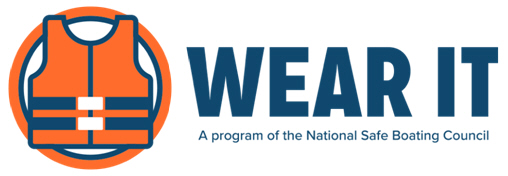From the Atlantic Ocean and Intercoastal Waterway to the Waccamaw River, the Myrtle Beach area has nearly endless options for boaters.
While having fun on the water, it’s important to stay safe. U.S. Coast Guard statistics show that drowning was the reported cause of death in four out of every five recreational boating fatalities and that 83 percent of those who drowned were not wearing life jackets.
There are many options for boaters when it comes to choosing a life jacket. When selecting a life jacket, a boater should check that it is U.S. Coast Guard approved, appropriate for the water activity, and fits properly.

Tips For Safe Boating
The National Safe Boating Council recommends these tips for boaters:
- Take a boating safety course. Gain valuable knowledge and on-water experience in a boating safety course with many options for novice to experienced boaters.
- Check equipment. Schedule a free vessel safety check with local U.S. Coast Guard Auxiliary or U.S. Power Squadrons to make sure all essential equipment is present, working and in good condition.
- Make a float plan. Always let someone on shore know the trip itinerary, including operator and passenger information, boat type and registration, and communication equipment on board.
- Wear a life jacket. Make sure everyone wears a life jacket – every time. A stowed life jacket is no use in an emergency.
- Use an engine cut-off switch – it’s the law. An engine cut-off switch is a proven safety device to stop a powerboat engine should the operator unexpectedly fall overboard.
- Watch the weather. Always check the forecast before departing on the water and frequently during the excursion.
- Know what’s going on around you at all times. Nearly a quarter of all reported boating accidents in 2021 were caused by operator inattention or improper lookout.
- Know where you’re going and travel at safe speeds. Be familiar with the area, local boating speed zones and always travel at a safe speed.
- Never boat under the influence. A BUI is involved in one-third of all recreational boating fatalities. Always designate a sober skipper.
- Keep in touch. Have more than one communication device that works when wet. VHF radios, emergency locator beacons, satellite phones, and cell phones can all be important devices in an emergency.
Learn more at www.SafeBoatingCampaign.com.
